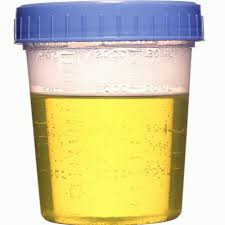 This week Think Progress is tweeting a link to its story about Utah spending $30,000 (yes 30,000 dollars) to catch 12 drug users on welfare.Think Progress goes on to report the details of the Utah welfare/drug-screening law.
This week Think Progress is tweeting a link to its story about Utah spending $30,000 (yes 30,000 dollars) to catch 12 drug users on welfare.Think Progress goes on to report the details of the Utah welfare/drug-screening law.Utah doesn’t randomly test applicants or require them to all undergo a drug test, but instead requires them to complete a written questionnaire that is meant to screen for drug abuse. Those who have a high probability are then given drug tests. The state spent nearly $6,000 on written tests for 4,730 applicants, 466 of which had to take a drug test, which cost more than $25,000. The law doesn’t disqualify those who test positive but instead requires them to go into a substance abuse treatment program.
So Utah does not drug-test all welfare recipients, but instead gives them a written test. Only about 10% of Utah welfare recipients scored appropriately on the written test to get drug tested. And then only 12 failed the drug test, but those folks were not thrown off the welfare rolls. Instead, they are required to participate in a drug rehab program.
What exactly is ThinkProgress complaining about?
- Thirty thousand dollars is the change in the bottom of the state coffers. So the issue is not wasted money.
- Only 10% of welfare recipients got drug tested based on a screening process that is admittedly too inclusive since only 12 people actually tested positive, but at least it shielded 90% from having to pee in a cup.
- And if they test positive, they are not left to starve, but directed into rehab to get off drugs.
[S]tate Rep. Brad Wilson (R-Kaysville) told HuffPost he thinks the bill saved more than it cost. He said an additional 247 Utahns dropped out of the TANF application process after they were told to expect a drug test.
"We had 247 who once we told them, 'our test shows that you are likely using controlled substances, we need you to take a drug test,' they refused to move forward with the process," said Wilson, who sponsored the new law. "The Department of Workforce Services here in Utah estimates the benefits of those folks would have received would have been approximately $369,000 of, basically, benefits we didn't pay to people who were most likely using controlled substances. We spent $31,000 on this program over the last year but we think we've saved at least $370,000, if not more."
***
Utah's law differs from Florida's in that it first subjects TANF applicants to a questionnaire and only tests those whose answers give the state a reasonable suspicion of drug use. The reasonable suspicion standard makes the law less vulnerable to a civil liberties lawsuit alleging the tests violate the Constitution's protections against unreasonable search.
I don't love this program, but I can live with it. I don't think it's a sham to enrich testing company political contributors or an overreach that humiliates everyone on welfare. It is a little "big brother" but it's welfare, so we are already into that territory. When I saw the headline, I thought I'd be writing a blog blasting Utah but I was wrong: it's Think Progress that needs to Get Above It's Raisin'. I'm a liberal who thinks drugs should be mostly legalized, but I also know that drug addiction is a huge social problem. If the state of Utah can funnel some addicts into recovery by using its powers in a limited way as I think they are doing here, at the cost of only $31,000 - or a savings of over $350,000 - I cannot get all worked up about it.
To be clear, had I been in the legislature, I probably would have voted against this law, but I can objectively see merit in it and I appreciate that it was constructed to require "resonable suspicion" prior to testing. An effort was actually made to address a perceived problem in a conservative and limited way. So I say, kudos to Utah for not overreacting the way Florida did, costing its taxpayers millions of dollars.
There are a lot of offensive things going on in red states that ThinkProgress can shine a light on. But they really missed the target on this one.
No comments:
Post a Comment